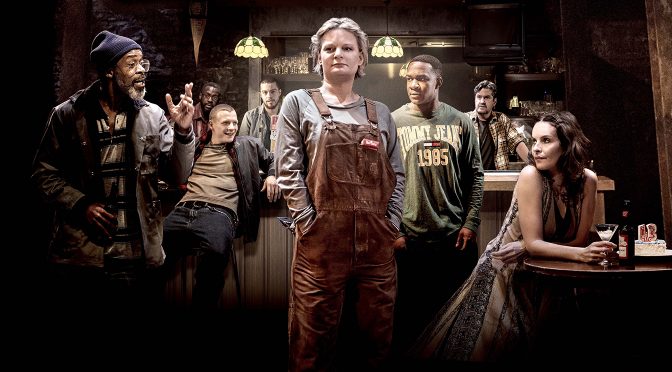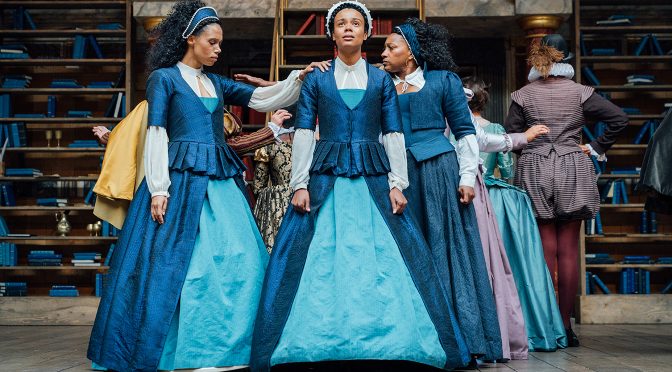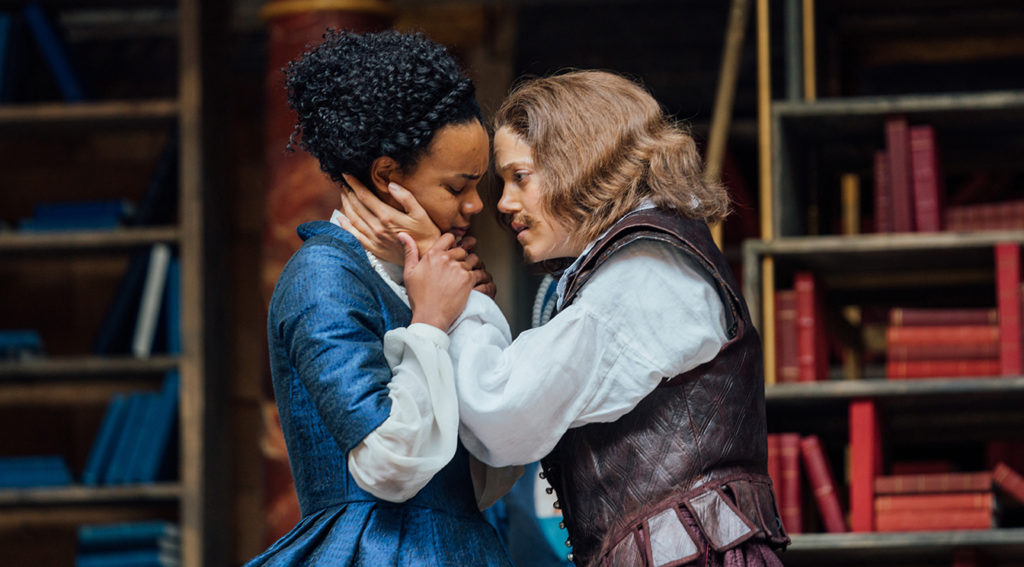Archive recordings of shows can never match a live experience. But, thankfully, the energy that powers Morgan Lloyd Malcom’s 2018 play is so ferocious, exciting and contagious that this filming (far from the highest quality) still does this stirring play proud.
Lloyd Malcom uses the life of Renaissance writer Emilia Bassano to highlight modern concerns about representation, sexism and racism. I’ve seen it described as “mock history”, which sums up its irreverent tone if not quite doing justice to the anger in the piece.
That rage first: Bassano’s life story provides a framework for examining the prejudices women and immigrants face. There are efforts to highlight hope, too – calls for action as much as anger. If a balance was intended it has, surely, failed. But what’s wrong with angry? Bassano – “stifled, ignored, abused” – certainly had plenty to be cross about.
As for cheek, Emilia is a very witty play, with lots of jokes around period details and plenty of fun at the expense of men. Lloyd Malcom is a dab hand at deadpan lines that the cast deliver brilliantly. Unafraid of crudity or contemporary touches (a dance lesson proves a fantastic scene for Jenni Maitland as the Countess of Kent), the jokes are strong.
Lloyd Malcolm spoils us with ideas and loose ends result. There’s the notion of “muscle memory” that women have concerning feminine experiences that surely needs developing. And the matter of Emilia’s own privilege causes the play to stumble more than once. Part of acknowledging Emilia’s relative wealth, scenes with her as an educator (of working-class women) deserve to be a play in their own right.
This recording is of the show’s second outing after a premiere at Shakespeare’s Globe. Some of the charge of having Shakespeare as a character in Emilia might be diminished in the new location. In truth, this is not the strongest role, despite Charity Wakefield’s efforts. But the play isn’t hampered by the Vaudeville’s smaller stage and Luisa Gerstein’s music benefits from being indoors. Nicole Charles’ direction is excellent, keeping the action moving with well-placed pauses at emotional moments. Thanks to Charles the production is more contained and focused.
All involved excel at making Emilia clear. Getting hung up on period detail (well, any detail really) is avoided in favour of entertainment and polemic. That so much ground is covered, with such confidence, is aided by having Emilia represented by three actors. Which leads to a trio of fantastic performances from Saffron Coomber and Adelle Leonce, led by Clare Perkins. In a play whose project is to provide a voice to those ignored, these women prove the foundation for the production’s success.
Until 2 December 2020




